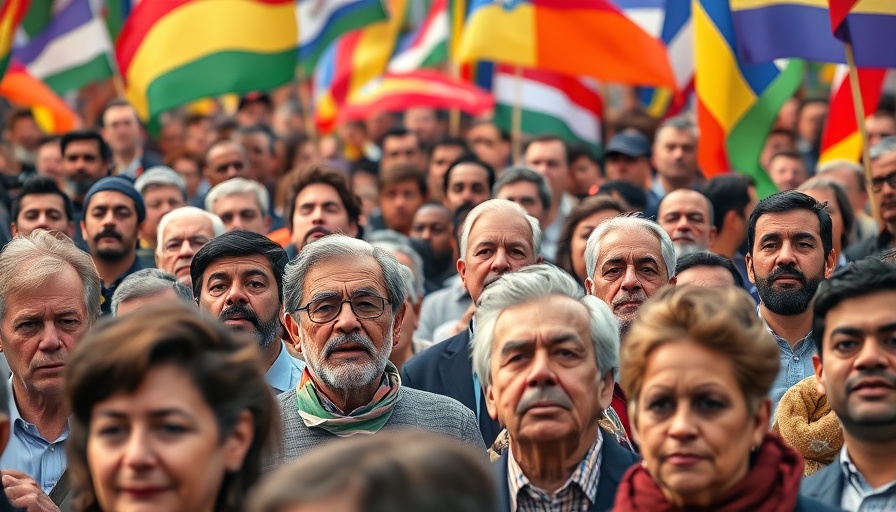
Breaking Down Trump's Middle East Impact: What Really Happened in Iran?
In a politically charged atmosphere, David Marcus argues that while former President Donald Trump might have delivered significant blows to Iran's nuclear ambitions, he left the country profoundly impacted but still intact. This distinction is crucial in evaluating the overall effectiveness of U.S. foreign policy in the region. Marcus's commentary, centered around the recent Operation Midnight Hammer, highlights a strategic shift in American military involvement, enabling a substantial reduction in casualties without triggering another extended conflict akin to the Iraq War.
A Closer Look: Operation Midnight Hammer’s Strategic Success
Operation Midnight Hammer stands out as a hallmark of tactical military engagement designed to neutralize nuclear threats with minimal civilian cost. Unlike previous American military interventions that became drawn-out conflicts, this operation was executed with precision, avoiding the quicksand of full-scale war while effectively undermining Iran’s nuclear capabilities. The troubling precedent of Iraq looms large, a reminder of the complexities involved in military interventions.
Examining Bipartisan Reactions to Trump's Tactics
Political responses to Trump's tactics in the Middle East reveal a divided landscape. Some Republicans herald Operation Midnight Hammer as a necessary step to secure U.S. national interests, emphasizing the need for robust action against nuclear proliferation. Conversely, critics from the Democratic side voice their concerns about the long-term ramifications of aggressive strategies, warning of an increased likelihood of retaliation from Iran. This debate encapsulates the broader discussion about American foreign policy, particularly regarding national security and diplomatic relations.
The Legacy of Trump's Iran Policy: What Lies Ahead?
As the dust settles on Trump's presidency, the question remains: what impact will his policies have on future U.S.-Iran relations? The precarious balance of power in the Middle East continues to shift, driven by emerging alliances and regional developments. Analysts predict that without a comprehensive diplomatic framework, the potential for further conflict remains high, posing risks not only to U.S. soldiers but to global stability.
Local Implications and National Security Concerns
As Americans reflect on these developments, understanding the local implications of foreign policy decisions becomes paramount. The repercussions of military actions extend beyond foreign borders, often influencing domestic sentiments regarding security and international relations. Voters' perceptions of how their government handles foreign conflicts, particularly in volatile regions like the Middle East, could affect upcoming elections and national discussions around foreign policy and military funding.
A Lesson for Future Leadership: The Need for Balance in Foreign Policy
Ultimately, Trump’s maneuvers in Iran convey vital lessons for future leadership on the necessity of balancing military strength with diplomatic engagement. The question of how to maintain national security without sacrificing the potential for meaningful dialogue is urgent. Leaders in upcoming administrations must navigate these waters with an awareness of the delicate interplay between power and diplomacy.
Final Thoughts: Reflections on American Foreign Policy
As we observe the unfolding political landscape shaped by Trump's presidency, it’s essential for voters to advocate for foreign policies that prioritize diplomatic solutions. Engaging in thoughtful discourse about these issues, coupled with active participation in the electoral process, will ensure that Americans can shape their nation’s role on the world stage responsibly. Understanding the nuances of foreign engagement, especially concerning a nation like Iran, is crucial as we move forward.
In conclusion, while Donald Trump may have dealt a decisive blow to Iran's ambitions, the question remains whether this approach has fundamentally altered the course of U.S. foreign policy within the region. It is imperative for the American public to stay informed and actively engage in discussions that will shape future policies.
 Add Element
Add Element  Add Row
Add Row 



Write A Comment